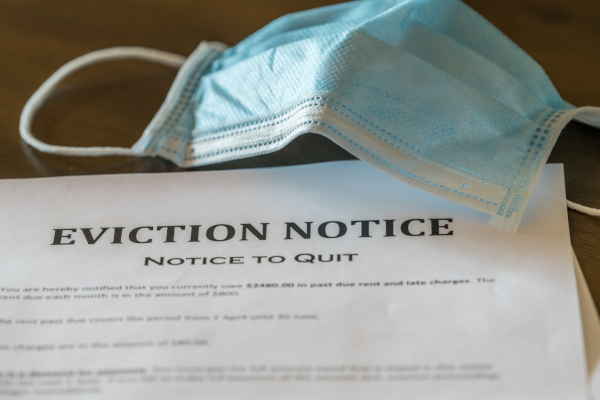The rules are about to change
Unlawful detainer actions are coming back.
End of COVID-19 Tenant Relief Act Protections
The COVID-19 Tenant Relief Act prevented landlords for evicting tenants on the basis of COVID-19 related financial distress. Any tenant who successfully completed and returned the COVID-19 financial distress form was protected from eviction when nonpayment was the reason. These protections end on January 31, 2021.
Now that the protections are gone, who can now be evicted?
Who can now be evicted?
Landlords who have tenants that they wish to evict must keep records about when debts became due. No tenant can be evicted for COVID-19 related debts occurring prior to August 31, 2020. If the debt occurred between September 1 and January 31, then any tenant who has paid at least 25% of the amount owed is protected from eviction.
Where landlords need to take note is the February 1 rent payment. If the February 1 rent payment is missed, this payment is not protected.
Can I require tenants pay the COVID-19 debt before current debt?
Clever landlords may think that they can force a tenant to be late on February 1 by allocating the February rent payment to the payment of past debts. This accounting jiujitsu makes it appear that the tenant did not pay February rent and thus can be evicted. But this strategy is not likely to persuade the court.
The spirit of the COVID-19 Tenant Relief Act is to prevent evictions for protected time periods. The Act would not have any effect if tenants could be evicted en masse as soon as February 1 arrived, even though the tenants had paid 25% of the protected time period debts. Given the spirit of the law, the court will likely require all money received to be attributed to the most recent debts.
This means that any money received will count as February rent payment, and the money will not be allocated to past-due amounts until excess funds are received.
Does this mean that tenants never have to pay back the old debts?
Technically, no. A tenant who consistently pays the rent due and only the rent due cannot be evicted for having protected debts, but they still owe the money. Although tenants still technically owe the money, most landlords are familiar with the idea of squeezing blood from stone.
Landlords who have let apartments for a long time know how hard it is to get debts paid by tenants. Tenants often do not have excess cash or savings. They have very few assets against which a landlord could attach any judgments. Effectively, most tenants are “judgment-proof.” This means that you might win the court case that says the tenant owes you money, but there is no money in the accounts to get, so the landlord only receives satisfaction in knowing that he or she was right…
This feeling of knowing that I was right, in my opinion, is not worth the time and effort of going to court. For this reason, in most circumstances, the landlord will be better suited to either forgive the debt or use the debt as a reason to negotiate a payment plan in the form of higher rents.
Can you evict for reasons other than nonpayment of rent?
Yes. Even under the COVID-19 Tenant Relief Act, landlords may evict for non-payment related reasons. But, by using a nonpayment related reason, you have to be willing to waive any claim against the past due rents. Given the above concept of tenants being judgment-proof, you may find that it is easier to waive the right to collect past due debts when you are dealing with a tenant who would never have the ability to pay it anyway.
Can the tenant convince the court that you are using nonpayment as a reason and retaliating? Possibly. If the tenant is able to prove this, then you may be in danger of criminal penalties. Retaliation is not treated lightly. However, the fact that you wave any claim to past due rents goes a long way toward removing this as an issue. It is by no means a conclusive fact, however.
If you are a tenant, bring up the topic of nonpayment and possible retaliation. Be ready to show that the landlord did not provide you the COVID-19 Financial Distress Disclosure forms or that if the landlord did that you returned them within the 15 days required.
If you are a landlord, be ready for the tenant to show the above. Have your rent roll ready. Have a declaration that “proves” that you properly distributed your notices. Possibly get declarations from any who witnessed you deliver the forms. Or, find a way to get the tenant to admit receiving these forms.
Most importantly, if you are a landlord, have evidence that shows the court the reasons that are not payment related for the eviction. If it is damage of the unit, be ready to show the court the damage. If it is a claim that the tenant is causing problems with neighbors, have declarations from the neighbors describing the behaviors that constitute the non-correctable problem.
Consult an Attorney
I am not a lawyer. I am a law enthusiast, and I try to stay current on what is happening in the law. I am also a third-year law student, because I’d like to be a lawyer someday. But, I am not a lawyer.
Look for “unlawful detainer” clinics in your area. Tenants and landlords are both able to use these resources to get information about the status of the law. Often, the information is free. At the very least, it is low cost. The legal clinic that I worked for last quarter charged $15 to get all your questions answered that could be answered in a single session.

